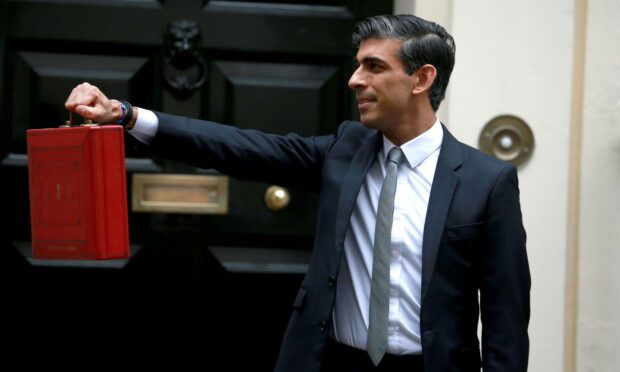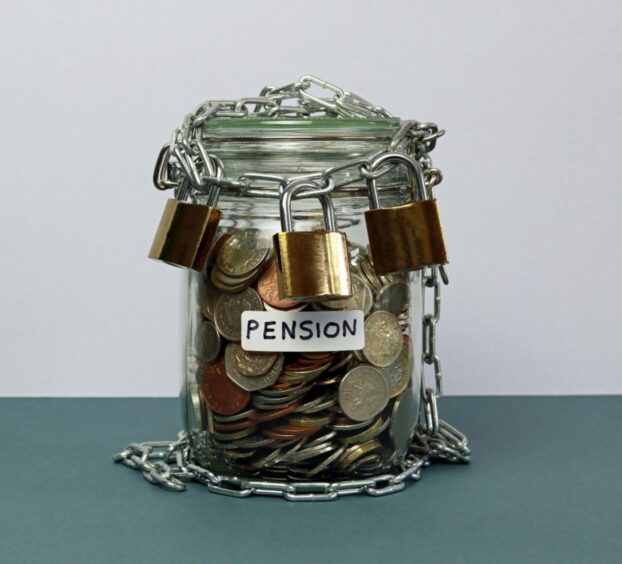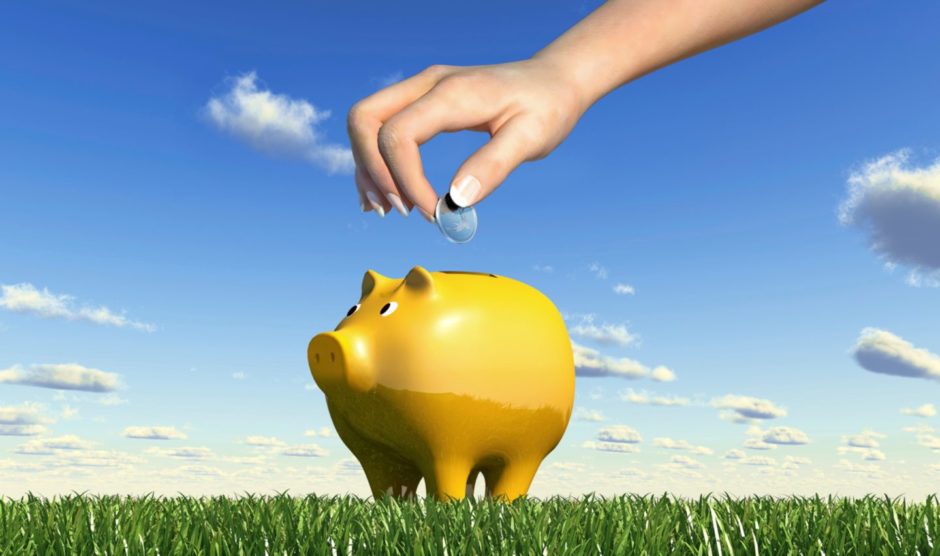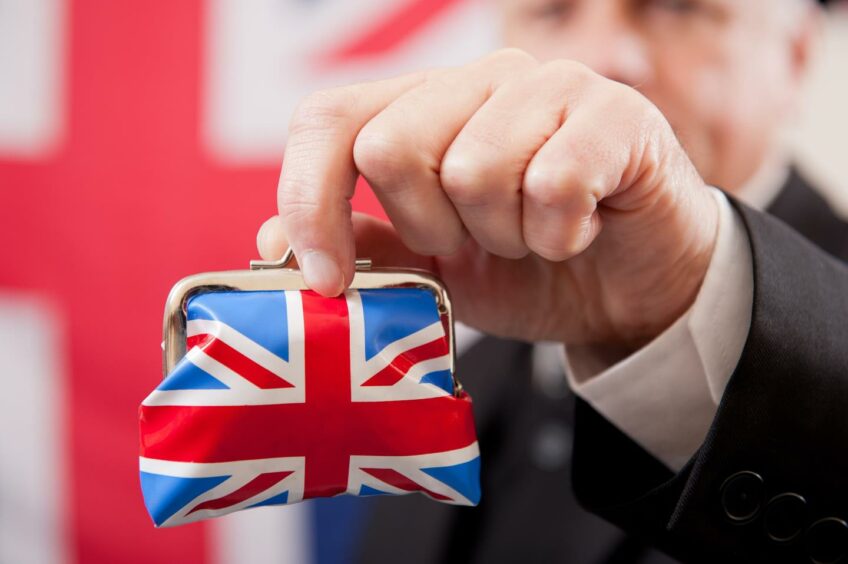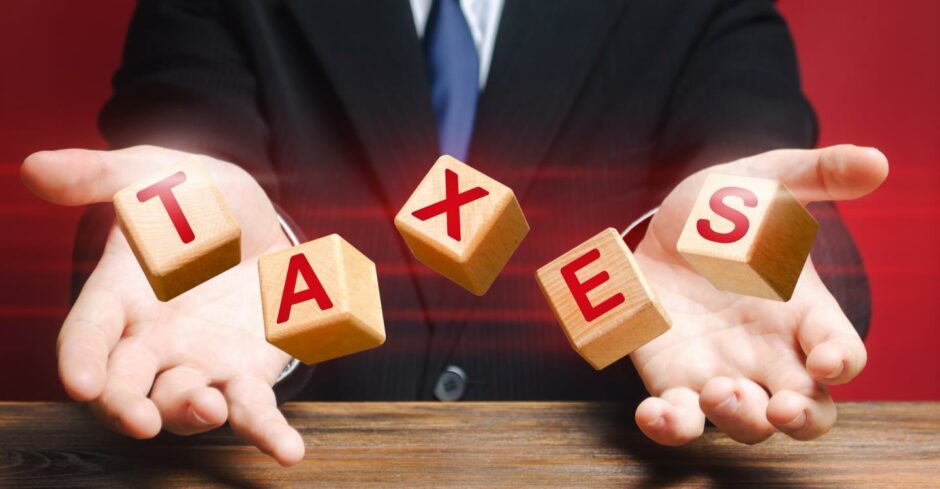It’s all eyes on the Spring Budget on Wednesday as households across the north and north-east look for some fiscal relief from the cost of living crisis.
Inflation has soared to a 30-year high, council tax bills have gone up for 2022-23, pension pots have taken a battering during the pandemic and many working people have seen only modest increases – or perhaps none at all – to their wages in recent years.
The Bank of England’s decision last week to raise the base interest rate by 0.25 percentage points to 0.75% heaped further pressure on homeowners with a mortgage.
National Insurance contributions and dividend tax are both due to rise by 1.25 percentage points on April 6, while a long freeze on tax allowances is effectively a “stealth” raid on savings.
So, in terms of its spending power, every pound in your pocket – or more likely your bank account – is now worth considerably less than before either Covid-19 or Brexit.
Will Chancellor Rishi Sunak’s battered red despatch box contain anything to give us some cheer?
We now live in an era where the government doesn’t always store up big announcements for budget days.”
Steve Cameron, pensions director, Aegon.
Jason Hollands, managing director of online investment platform Bestinvest, said: “One thing there probably won’t be this close to the end of the tax year are changes to personal taxation rates, thresholds, and allowances – not least because those are items reserved for a full Budget, which the Spring Statement is not.
“But also, a five-year deep freeze for most of them was announced last spring.
“We already know that a 1.25% National Insurance hike is arriving in the new tax year.”
Will the chancellor do a U-turn?
Mr Hollands added: “There is an ongoing hope by some that the chancellor will cancel this on Wednesday, with the case for a fiscal boost growing because of the economic uncertainty resulting from the crisis in Ukraine.
“However, I wouldn’t be too optimistic about this as both the chancellor and prime minister have recently stated they are sticking to their guns.
“And let’s not forget the government will be under increased pressure to raise wages in the public sector, given rampant inflation, as well as ratchet up defence spending in response to the new Cold War.
“So, it looks like the average worker will be paying £255 a year more in tax in a few weeks’ time.”
Unions have urged the government to reverse its decision to suspend the state pension triple lock, suggesting the move will cost pensioners nearly £500 a year.
The TUC said April’s 3.1% planned increase to the state pension, compared to the 8.3% that would have been delivered under the triple lock formula, will cost pensioners £487.
Inflation has soared and is now expected to exceed 8% this year, which means pensioners are facing a “significant real terms fall” in income this year, said the TUC.
The triple lock protects the value of the state pension every tax year by raising it by either inflation, average wage growth or 2.5%, whichever is higher. It has been suspended for 2022-23.
Steven Cameron, pensions director at insurance giant Aegon, said: “We now live in an era where the government doesn’t always store up big announcements for budget days.
“Gone are the days when budgets were all about a change to the basic rate of income tax or how much more you’d pay for a pint of beer or bottle of wine – although duty on prosecco did put in an appearance in Rishi’s Autumn Budget.
“While there’s much to do to ‘Build Britain back better’, the government may feel limited in its scope to take any more tough measures right now.”
Mr Cameron added: “I’d really like to see relaxations on (pension) contribution limits, particularly to help those needing to ‘catch up’ for ground lost during the pandemic.
“One obvious candidate would be to increase the £4,000 limit on contributions which can be made after an individual accesses their pension flexibly from age 55.
“Another would be to raise how much individuals without earnings can have paid into their pension.
“While we’ve seen many thresholds frozen for a five-year period, that £3,600 limit was set over 20 years ago so is surely overdue for review.”
There have been widespread calls for a temporary cut in fuel duty or VAT, with the cost of filling up a large family car now more than £100.
But Mr Sunak may be inclined to leave these taxes as they are.
Website Auto Express said: “The most-heard rationale for not introducing a temporary cut is that oil prices are volatile.
“Opponents to a VAT cut say such a move is unlikely because once made, reinstating the tax rate in six months’ time would be problematic because of the public outcry it would cause.”
Building back the Treasury’s coffers
Any “gifts” in the Spring Budget would, of course, leave a gaping hole in the Treasury’s balance sheet as it tries to repair the economic damage caused by the pandemic.
Bestinvest managing director Jason Hollands said: “The Institute for Fiscal Studies (IFS) think-tank said, when it was announced last autumn, the chancellor’s decision to freeze tax thresholds was expected to raise £8 billion a year.
“But the IFS has revised this heavily upwards in the light of a soaring inflation outlook.
“It now expects the Treasury to reap an additional £20.5bn a year from ‘fiscal drag’ – the process by which, even when tax rates and thresholds are frozen, more tax is paid across the country as salaries rise and assets increase in value.”
Under current government plans, tax revenue is forecast to rise to 35% of gross domestic product by 2025–26.
According to the IFS, this will represent the highest sustained level of tax seen in the UK since the aftermath of the Second World War.
The overall impact will be to gradually ramp up the UK tax burden by an eventual 2% of GDP, according to the Treasury’s own scorecard – equivalent to around £46bn in today’s money.
IFS added: Next month will mark the beginning of a steep ascent in the path of UK taxation.
“It will come hand in hand with a spike in inflation, only fuelled further by the conflict in Ukraine.
“Not for nothing did TS Eliot call April the cruellest month.”
